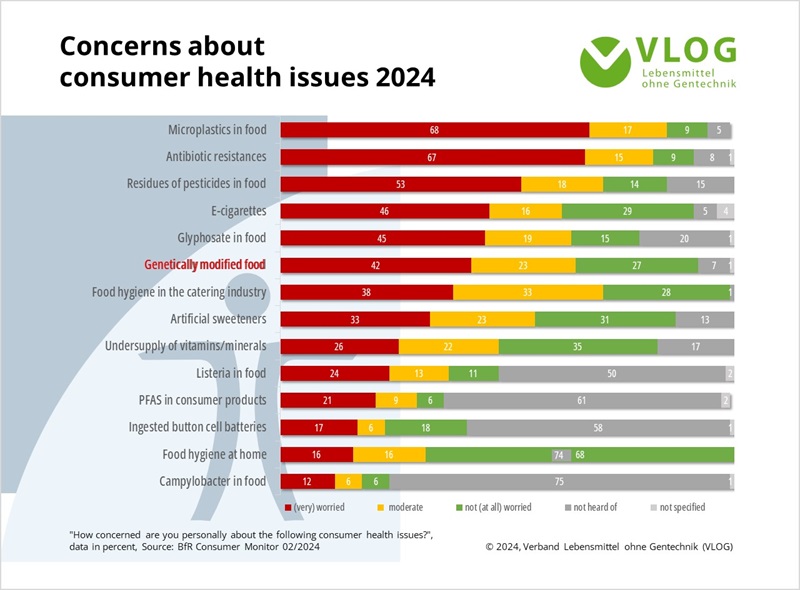News
BfR Consumer Monitor: Two thirds are concerned about genetic engineering in food
Consistently high levels of awareness and concern
A clear majority of consumers are concerned about the use of genetic engineering in food production. This is according to the results of the BfR Consumer Monitor 02/2024 on "consumer health issues". When asked how concerned they were personally, 42 percent of 1,000 respondents said they were "very concerned" about genetic engineering in food, while 23 percent were "moderately concerned". Over the course of the past seven surveys for the biannually published BfR Monitor, these figures have remained consistently high and fluctuated only slightly. At 93 percent, genetic engineering is currently in third place for "awareness of consumer health issues", only just behind microplastics and e-cigarettes, ahead of antibiotic resistance and pesticide residues.
Information deficits and labelling gap
According to the BfR analysis, 90 percent of respondents are interested in health-related topics and try to stay informed . When it comes to genetic engineering, it is clear that although almost two thirds of consumers are concerned, over a third do not feel sufficiently informed. The fact is that a labelling gap in animal foods leaves consumers in the dark about the use of genetically modified plants in animal feed and restricts their freedom of choice when shopping. Most genetically modified plants (GMOs) end up in the feed trough of cows, chickens and especially pigs. For milk, eggs and meat as well as products made from them, the "Ohne GenTechnik" (Non-GMO) seal ensures safety and guarantees that GMOs have not been used in animal feed. The seal can be found on over 16,000 foodstuffs , in particular from animal origin.

